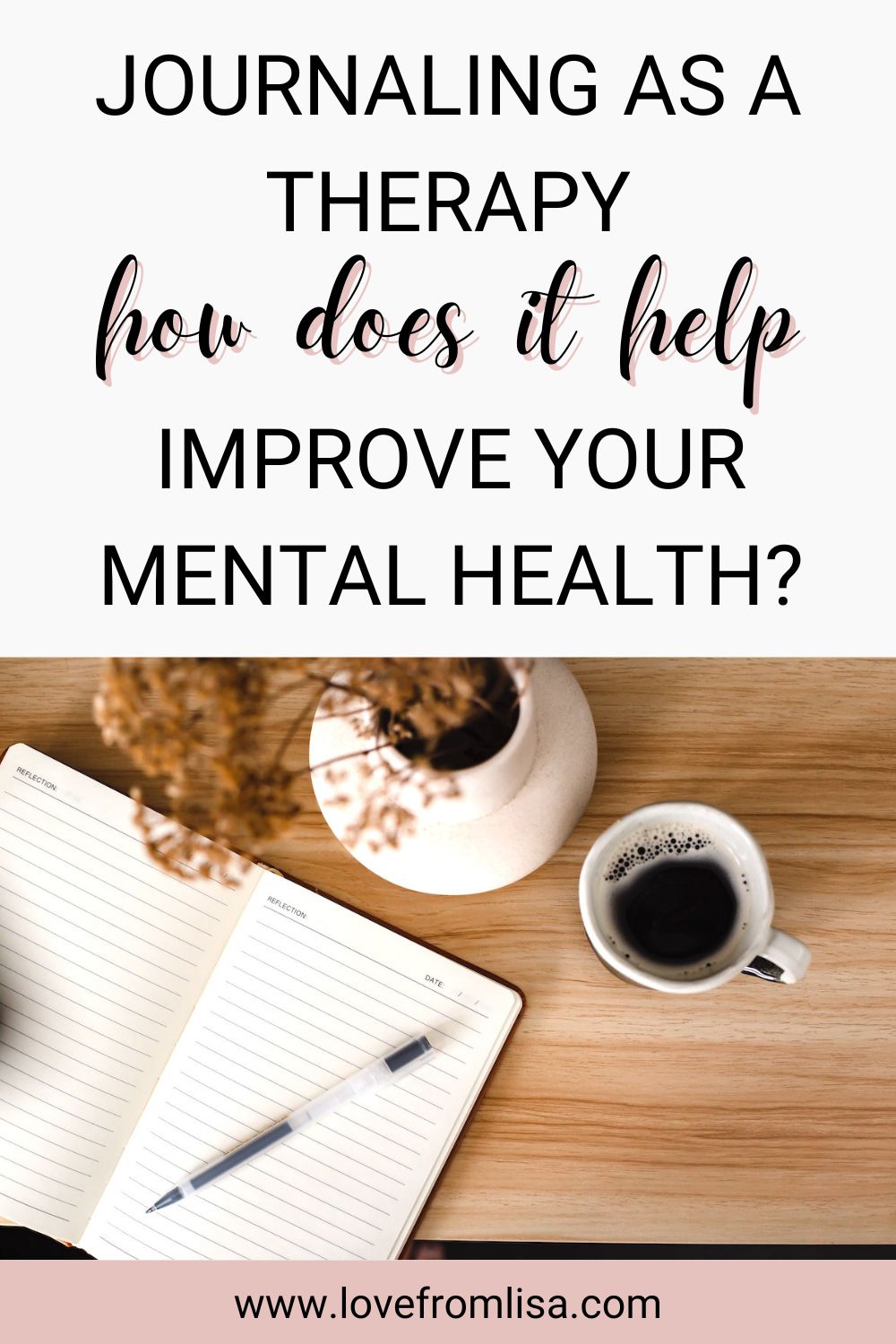Journaling as a therapy, how does it help improve your mental health?
Last Updated on October 3, 2024

[AD] Writing about stressful events can significantly impact our physical and emotional wellbeing. This results in fewer sick days, and a greater acceptance of our mental experiences.
According to research, journaling enables us to acknowledge and accept our emotions. This process can lead to fewer negative reactions to stressors.
This article delves into the advantages of journaling for mental health. We shall also offer guidance and techniques to assist individuals in expressing their thoughts and emotions.
What is therapeutic journaling?
Keeping a personal journal where we jot down our thoughts and emotions can be an incredibly effective tool for self improvement and healing.
However, there is a difference between regular diary writing and therapeutic journaling.
When we engage in the latter, we delve into the memories of challenging or traumatic life experiences. We examine our thoughts and feelings that are tied to them.
This process helps us better understand ourselves, our emotions, and how we respond to our surroundings.
By penning down our sentiments, we may slowly heal ourselves emotionally and physically.
In essence, therapeutic journaling offers us a way to gain perspective and eventually, a greater sense of inner calm and tranquillity.
Benefits of therapeutic journaling
Below are some of the most important benefits of therapeutic journaling:
1 Helps recover from anxiety
Journaling is a widely adopted and effective approach to treating anxiety disorders. Its efficacy lies in the fact that it helps individuals acknowledge and accept their negative emotions. Consequently, it develops a better emotional response to stress.
A recent meta-review has revealed that women may benefit more from journaling than men. However, both genders have reported positive effects.
Moreover, journaling can be implemented as a long term treatment strategy for those who suffer from anxiety.
2 Helps manage stress
Journaling is a highly effective tool that can help individuals cope with stress and manage their mental health. Moreover, regular journaling can reduce the risk of burnout and chronic anxiety.
Journaling gives individuals a safe and private outlet to express their thoughts and emotions. Therefore, it helps them gain a better perspective on their challenges and develop a deeper understanding of their emotions.
3 Assists self reflection
Keeping a journal can help you delve into your situation, confront negative thoughts, and establish a space for introspection.
It facilitates cognitive diffusion, enabling individuals to acknowledge their feelings and take necessary actions toward change.
This can be especially advantageous when overwhelmed or bogged down by pessimistic thoughts. Therefore, journaling helps us gain a more objective and holistic perspective.

How to do therapeutic journaling
Dr. James Pennebaker’s expressive writing protocol is a widely researched and used method for therapeutic journaling.
For four consecutive days, you write about a stressful, emotional, or traumatic event. This process needs to continue for three to five sessions. Moreover, each session must last 15-20 minutes.
Here are a few prompts that can help you get started with journaling, and stimulate your creativity and healing process.
Consider the following prompts:
- Compile a list of five positive things that you can remember during tough times
- Identify and write down five qualities you like most about yourself
- Jot down three of the best compliments you have ever received
- Write a letter of forgiveness to someone who has hurt you
- Write a letter of self forgiveness for actions in the past that you regret
- Create a list of ten things that never fail to make you smile
- Write a letter expressing gratitude to someone who has positively impacted your life
This way of writing helps improve physical and mental health. Therefore, it is used in both medical and non medical situations.
Expressive writing allows individuals to explore and process their emotions, leading to improved wellbeing and a greater sense of inner peace.
How to find the best journals
The guided journals are a fantastic tool for your therapeutic purposes. It helps you fight the paralysing fear of a blank page.
These journals come equipped with prompts, structure, and direction. This helps you begin the process when you’re unsure where to start.
The beauty of guided journals lies in their versatility. Each journal offers different benefits, with useful tips on the following:
- Reaching your goals
- Improving your productivity
- Fostering creativity
- Promoting mindfulness
With this framework and guidance, guided journals can help individuals become more creative and mindful in their everyday lives.
Therefore, guided journals are invaluable when organising your thoughts, cultivating new habits, or simply reflecting on your experiences.
How does using a journal improve your mental health?







